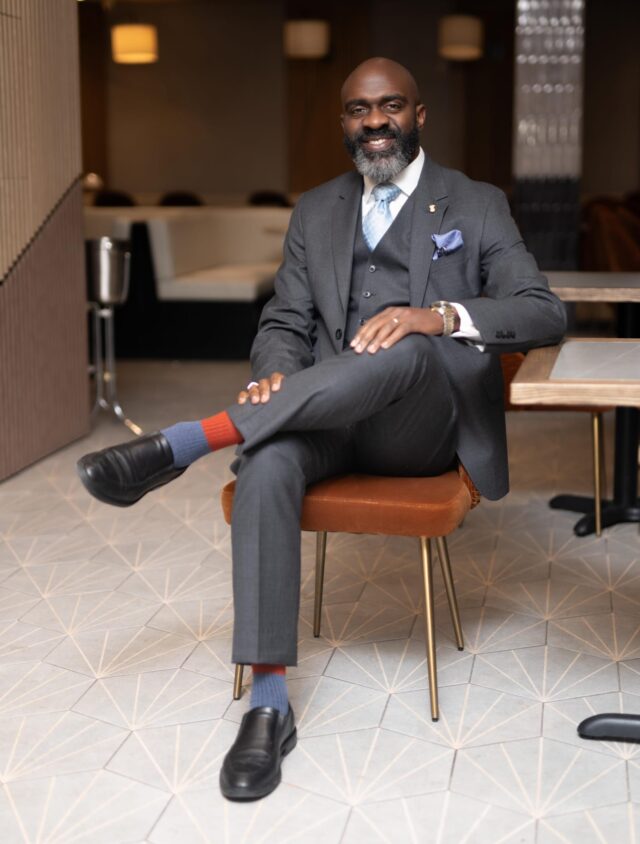Youth Policy Plan
Youth Policy Plan
Vision:
Michael Blake believes that a city’s future is defined by how it supports its youth. In a city where over a million young people navigate public schools, housing insecurity, economic hardship, and climate anxiety, we must do more than survive, we must equip our youth to thrive. This Youth Policy Plan builds a cradle-to-career pathway grounded in dignity, opportunity, and equity. From free CUNY tuition and culturally responsive curriculum to guaranteed housing for youth aging out of foster care and mental health supports in schools, this plan ensures that young people are not afterthoughts, but essential stakeholders in our city’s future. A Blake administration will uplift youth as change-makers, not just recipients of services, and reimagine public systems to center their leadership, creativity, and well-being.
Grounding the Crisis in Data
Youth under the age of 25 make up nearly 30% of New York City’s population, yet they experience some of the starkest inequities. According to the NYC Department of Youth and Community Development, over 100,000 youth experience homelessness annually, and young people of color face disproportionate rates of school discipline, economic marginalization, and mental health challenges. Public high school graduation rates are improving, but post-secondary attainment and employment pathways remain unequal. Meanwhile, over 40% of foster youth aging out of care become homeless within 18 months. These are not isolated problems, they are the symptoms of underinvestment and disconnection. Our Youth Policy Plan responds with urgency and clarity, treating youth not as a burden, but as builders of New York’s future.
Housing Stability for Foster and At-Risk Youth
Young people aging out of foster care or facing housing instability must not fall through the cracks. Stable housing is foundational to success in school, work, and life. New York City must take a direct role in ensuring that youth have access to dignified, long-term housing solutions that promote safety, independence, and opportunity.
- Expand supportive housing options for foster youth transitioning to adulthood by creating at least 2,000 new units within five years.
- Fund wraparound services, including trauma counseling, life skills, and workforce training, within all youth-focused housing developments.
- Institute a citywide Foster Youth Housing Preference on affordable housing lotteries, modeled after the Veterans preference program.
Mental Health, Restorative Justice, and School-Based Wellness
Mental health is essential for youth success. Schools must serve as healing-centered spaces with resources that meet the emotional, social, and psychological needs of students, particularly youth of color and LGBTQ+ youth who face disproportionate trauma and punishment.
- Invest in peer-led mental health clubs, crisis response teams, and trauma-informed professional development for educators.
- Create a citywide Restorative Justice Fund to expand school-based RJ programs, conflict mediation, and peer accountability frameworks.
- Ensure all DOE schools have at least one full-time licensed mental health professional by 2027.
Universal Childcare and Early Learning
Access to early education lays the foundation for lifelong learning and economic mobility. A truly universal childcare system means eliminating gaps in access, affordability, and quality for every family across the five boroughs.
- Restore $399 million in Pre-K and 3K cuts and expand availability for immigrant, multilingual, and special needs children.
- Ensure that all Pre-K and 3K staff are paid living wages and have pathways to certification and advancement.
- Establish neighborhood-based outreach teams to enroll families in early learning programs and support navigation of childcare subsidies.
Paid Career Pathways and Apprenticeships
Economic opportunity must be within reach for every young person. Paid apprenticeships and job training programs connect students to the industries of tomorrow while supporting the city’s economy today. Public dollars should fund real wages for real work.
- Create 10,000 paid youth apprenticeship slots in partnership with CUNY, unions, and private sector employers.
- Require all city agencies to create youth employment pipelines through paid internships, fellowships, and mentorships.
- Launch a Youth Entrepreneurship Fund to support startup ventures led by New Yorkers ages 16–24.
Digital Equity and Connectivity for Youth
The digital divide is a civil rights issue. From remote learning to applying for jobs, digital access is essential. We must ensure that no young person is left offline.
- Provide broadband and digital devices to every NYC student in temporary housing or public housing.
- Establish youth-run help desks in public libraries and DOE buildings to support peer-to-peer digital navigation.
- Expand access to STEM education and coding camps through a citywide Digital Learning Summer initiative.
Youth Climate Justice and Green Infrastructure
Youth are leading the fight against climate change. NYC must support and scale youth-led climate action, embedding sustainability into city programs, schools, and infrastructure investments.
- Fund green schoolyards, urban farms, and rooftop gardens maintained by student groups and community organizations.
- Create a Green Youth Infrastructure Task Force to oversee climate project implementation and job pipelines for youth.
- Mandate environmental literacy curricula for grades K–12 and integrate youth into local climate resilience planning.
Education, Equity, and Accountability
Every young person has the right to a rigorous, relevant, and culturally affirming education. Systemic inequities in funding, discipline, and curriculum must be actively dismantled.
- Strengthen education rights in the NYC Charter, mandating annual audits on funding, facilities, and racial disparities.
- Restore gifted & talented programs equitably across all boroughs and increase access to arts and civics education.
- Expand mentorship and success coaching through My Brother’s Keeper and My Sister’s Keeper programs.
Youth Voice and Participatory Governance
- Institutionalize the NYC Youth Council with legislative oversight powers and budget line items for implementation.
- Host biannual citywide Youth Summits to gather input and track progress on youth priorities across agencies.
- Launch participatory budgeting pilot programs in every borough where youth decide how to spend public funds.
Immigrant and Multilingual Youth Empowerment
New York City’s immigrant youth, including undocumented students and English language learners, face significant educational and economic barriers. They are more likely to be excluded from job opportunities, lack language-specific mental health care, and experience legal vulnerability. A city that values diversity must protect and uplift immigrant youth with inclusive, accessible, and opportunity-rich services.
- Expand ActionNYC to every school campus, providing free legal screenings, DACA support, and language-access services for immigrant youth and families.
- Fund culturally and linguistically responsive guidance counselors in high schools serving large ELL and immigrant populations.
- Create an Immigrant Youth Career Acceleration Fund to provide pathways to industry-recognized certifications, regardless of legal status.
- Designate all DOE schools and public libraries as ICE-free safe zones and mandate Know Your Rights education at every high school.
Civic Literacy, Youth Voting, and Democracy Education
An engaged, informed youth electorate is essential to a thriving democracy. However, civic knowledge, voter turnout among youth, and political education have lagged significantly. We must build a generation of young civic leaders who understand their power, rights, and responsibilities as New Yorkers.
- Mandate a full-credit high school course on NYC government, participatory budgeting, voting rights, and community organizing by 11th grade.
- Partner with CUNY and nonprofits to deploy Youth Civic Corps teams to lead voter registration drives, candidate forums, and community events.
- Fund annual Civic Summer Institutes where high school students intern with city agencies, community boards, and advocacy organizations.
- Implement automatic pre-registration of 16- and 17-year-olds for voting at city schools and link to IDNYC services.
How We Move Forward
To implement this vision, a Blake administration will establish a Deputy Mayor for Youth Development and Equity who will coordinate all city agencies impacting young people. A new Youth Cabinet composed of diverse youth leaders will provide ongoing guidance, oversight, and co-governance. Annual Youth Equity Scorecards will be published to measure progress in education, housing, health, safety, and economic opportunity. Every city department will submit an annual Youth Impact Report detailing service outcomes and gaps. A dedicated Youth Opportunity Investment Fund will blend public and private resources to fund programs in employment, entrepreneurship, and mental health. This plan is not just about programs—it’s about embedding youth equity into the operating system of New York City government.



